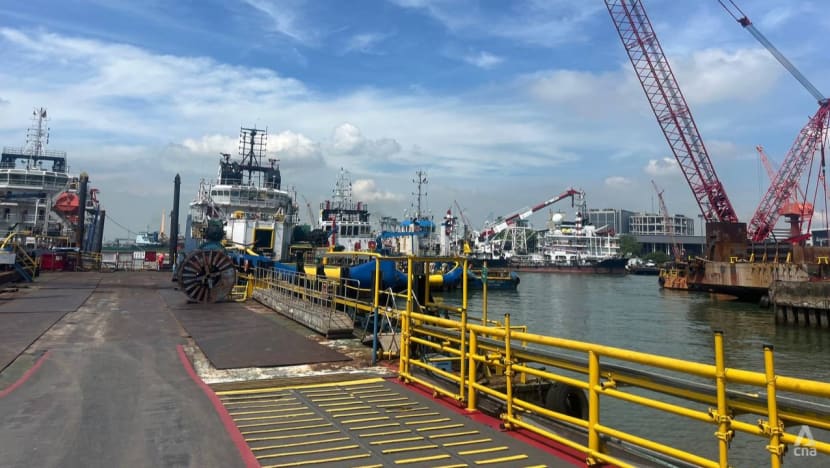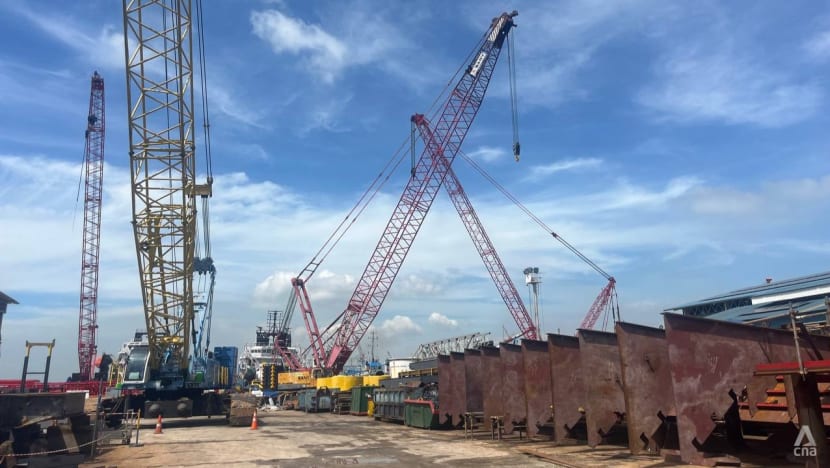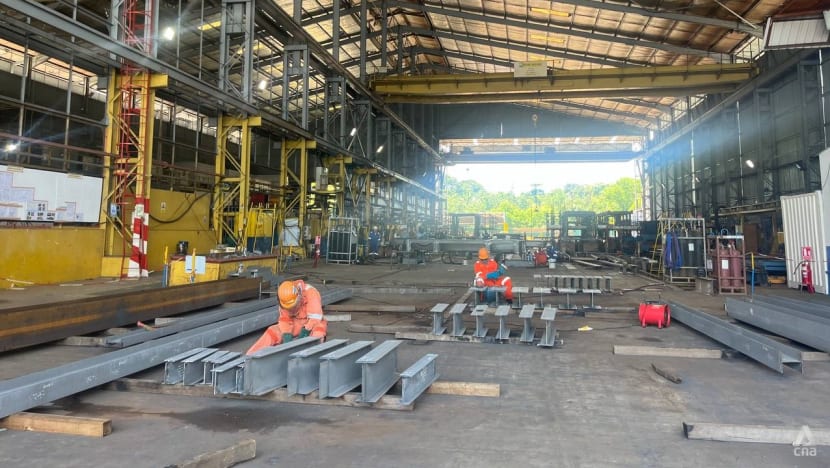Automation, training initiatives among proposed solutions as Singapore’s marine sector braces for manpower crunch
Plans have been announced to lower the maximum number of foreign workers firms can hire, and industry players now fear they would not be able to find enough local talent.

Marine and offshore engineering firms in Singapore could face rough waters ahead, with foreign manpower limits set to be imposed on the sector. (Photo: Clara Lee)
SINGAPORE: The marine and offshore engineering sector could face rough waters ahead, as firms struggle to replace foreign manpower.
The government has announced plans to lower the maximum number of foreign workers such firms can hire.
More could be forced to close down if they cannot find enough local talent, Ms Annie Chua, chairman of the Enterprise Productivity Committee in the Association of Singapore Marine Industries (ASMI), told CNA.
Minister for Trade and Industry Gan Kim Yong had announced at the recent Committee of Supply debate that the sector’s dependency ratio ceiling (DRC) will be lowered from 2026.
The DRC specifies the maximum share of S Pass and work permit holders in a company.
For a start, the DRC will be adjusted from 77.8 to 75 per cent. Levies for work permit holders will also be raised by up to S$100 (US$75), depending on their skill levels.
TURNING TO AUTOMATION
A support package of S$100 million will be provided to help firms in the sector adopt new technology over the next five years.
One example of such technology needed to drive transformation in the sector is the use of automated robots to conduct maintenance checks on vessels.
"Our vehicles use machine intelligence similar to a self-driving car. It can help inspect underwater infrastructure much safer and quicker compared to traditional methods relying on human divers and operators,” BeeX Autonomous Systems co-founder Grace Chia told CNA.
The technology also saves about a third of manpower needed for inspections, she added.
However, some industry players told CNA that there is a limit to how much the government funding can actually help the transition.
Mr Thomas Tan, CEO of shipbuilding and repair firm Kim Heng, told CNA that in its workshop, automation has already been implemented, such as the use of cutting machines and welding machines.

“But the confined space on the ship requires only manual (labour). There's no space for such automation, and requires manual welding and manual work,” he explained.
LACK OF LOCAL TALENT
It is also difficult to rely more on Singaporean talent when there is not a large pool in the first place, said Mr Tan.
"In the past, we actually hired locals, but a lot of them, just halfway through the training, they just quit in two or three months, because they find that the external conditions are very harsh, and they don't like to be in the sun and rain all day sometimes,” he said.
To help firms in the sector find enough workers to avoid possibly winding up, ASMI is urging the authorities to focus on attracting locals into the marine sector.

"We can relook into the various universities and polytechnics and their curriculum to have a balance, not only just on the academic, but also on the on-job training as well,” said Ms Chua.
The on-job training would properly introduce the students to the nature of the business and how it works, she added.
In the meantime, the association has been working with Enterprise Singapore and various government agencies to develop an industry plan.
The plan, to be unveiled in the next few months, will outline long-term strategies for businesses to seize opportunities in the green sector and groom local leaders.
















